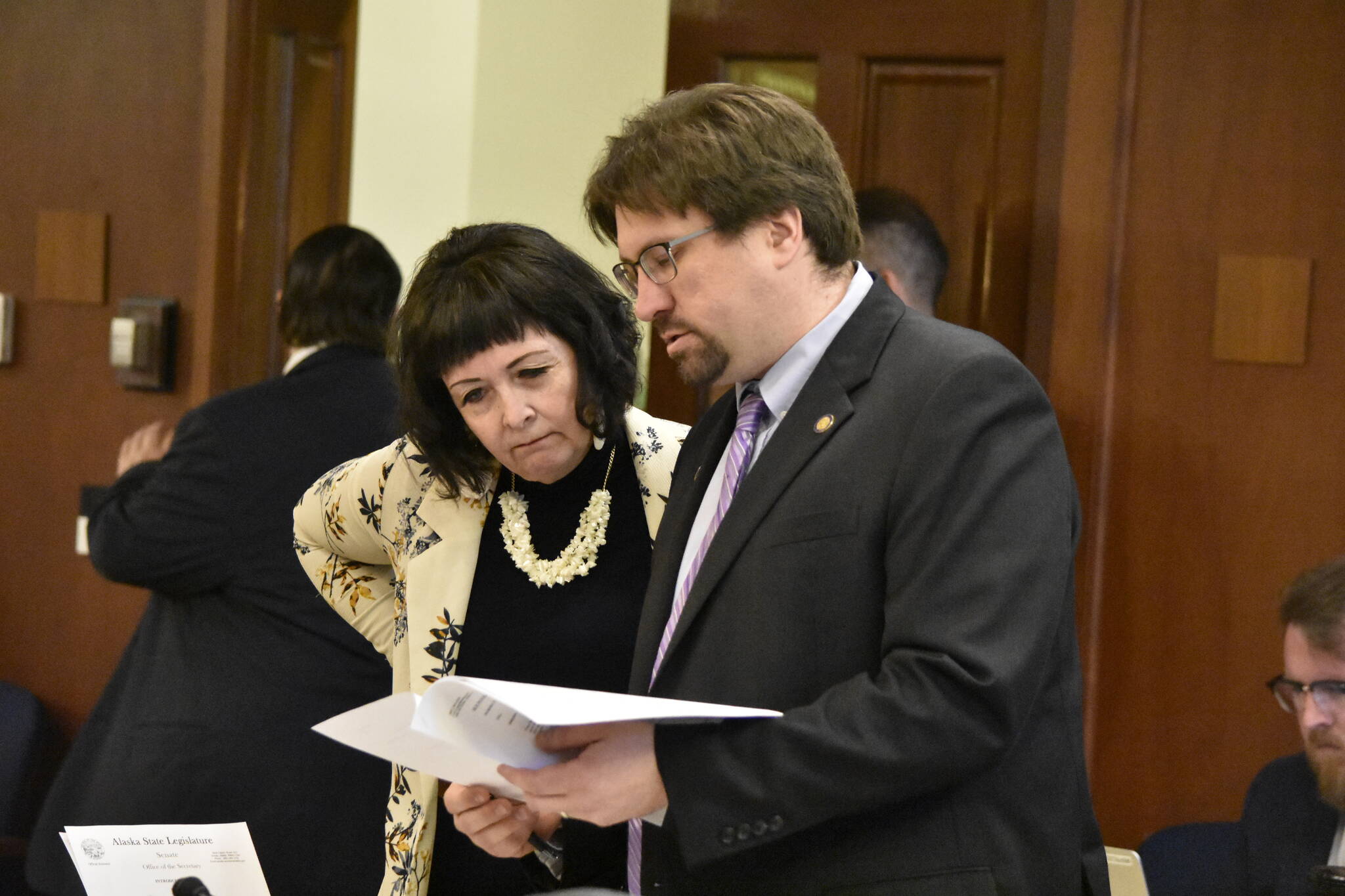By Rich Moniak
One of the prime arguments against raising taxes is that government is irresponsible. Alaska’s Senate may have just proved that.
First, they approved a $5,500 payout to Alaskans — $4,200 PFD and $1,300 for energy relief. And followed that up by passing a budget in which spending will exceed revenue by almost a billion dollars.
It seems most of the 1 5 members who voted in favor of it don’t expect it to be passed by the House. But as of late Thursday, leadership of the bipartisan House majority wasn’t so sure.
Almost immediately after the Senate vote, House Speaker Louise Stutes, R-Kodiak complained that the goal of her caucus to build the state’s savings reserves “just got shut down in the Senate. All these conservative people just spent all our money, all our savings account, and money that we haven’t gotten yet.”
The money isn’t there yet because it’s based on the price of oil staying higher than it’s been in years. Russia’s unjustified war against Ukraine pushed it to over $100 per barrel.
The flip side of that is energy costs skyrocketed. When the House version of the budget passed a month ago, it included a $1,250 PFD along with the energy relief. But they also budgeted to put more than $2 billion into the state’s Statutory Budget Reserve.
Ten days later, the Senate Finance Committee advanced a bill to pay a $2,600 PFD. That was the figure the full Senate began debating this week when Sen. Mike Shower, R-Wasilla, proposed an amendment to base this year’s PFD on the 1982 statutory formula. The $4,200 payout was narrowly approved.
Another Republican from Wasilla proposed offsetting the energy relief checks by eliminating $840 million budgeted for forward funding education. That passed.
Shower didn’t have a problem with that. He tried to cut the Senate’s $60 million Plan B for increasing the K-12 school funding formula, which has been stagnant for years. In his view “education is important to individuals that have kids. A lot of people don’t have kids.”
Fortunately, the majority in the Senate recognizes that cuts to education impacts a lot more than just families with kids. That amendment failed along with other proposed cuts aimed at offsetting the increase spending for the big PFD.
But Shower knew that would happen. It was a charade to appear fiscally responsible to his constituency.
Senate Finance Committee co-chair Bert Stedman. R-Sitka, is one of sharpest fiscal minds in the Legislature. During the PFD debate, he warned that returning to the 1982 formula wasn’t sustainable. After the spending spree, he worried that next Legislature would be left with “no savings to fall back on” if oil prices drop below $93.
In the end, the Senate’s budget passed by a vote of 15-5. Only two Anchorage Republicans voted against it. Stedman and others who opposed the bigger PFD voted to approve the budget that contained it.
“The reality of it staying in its final form is essentially nonexistent” Senate President Peter Micciche said after casting his vote. He also explained he’d like to see more going into the state’s savings account.
The expectation was that the House wouldn’t approve it. Instead, a conference committee comprised on members from both chambers will negotiate a compromise.
Even Shower claimed he anticipated the House would reduce the PFD. He wanted it bigger to give the Senate leverage in those negotiations. But when asked about the possibility the House would pass it, he responded with indifference. “So what?”
That’s what I’d say if those strategies were in play in early April. Then there would have been ample time to debate, negotiate, and craft an intelligent and responsible budget compromise before the session ended.
Now they’ve got only a week to show their cards and get it done. With a disagreement this big, it wouldn’t be surprising to see another expensive overtime session.
Or, with only two defections from Stutes’ bipartisan majority, the House could approve the budget and send it to Gov. Mike Dunleavy. What he’ll do with his veto pen is unknown. But’s almost certain he’d sign off on the $4,200 PFD.
And that would make the fiscally smart Senate Republicans look like foolish gamblers.
• Rich Moniak is a Juneau resident and retired civil engineer with more than 25 years of experience working in the public sector. Columns, My Turns and Letters to the Editor represent the view of the author, not the view of the Juneau Empire. Have something to say? Here’s how to submit a My Turn or letter.


